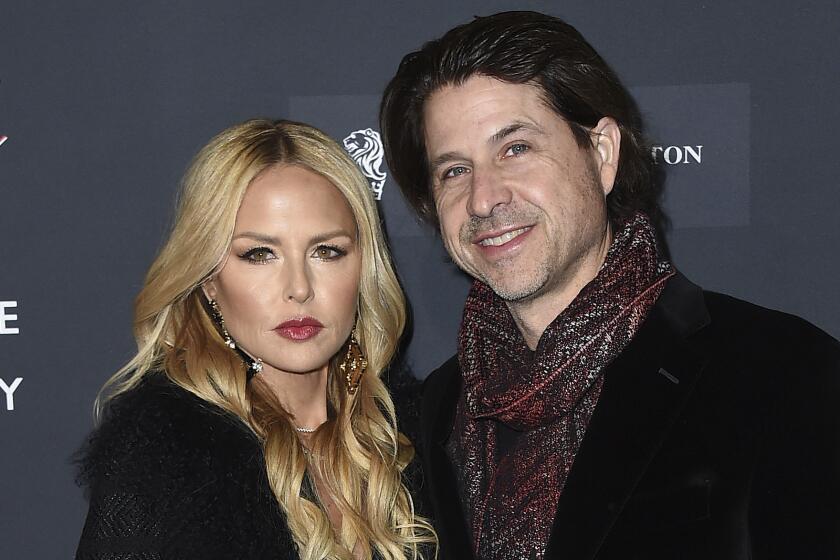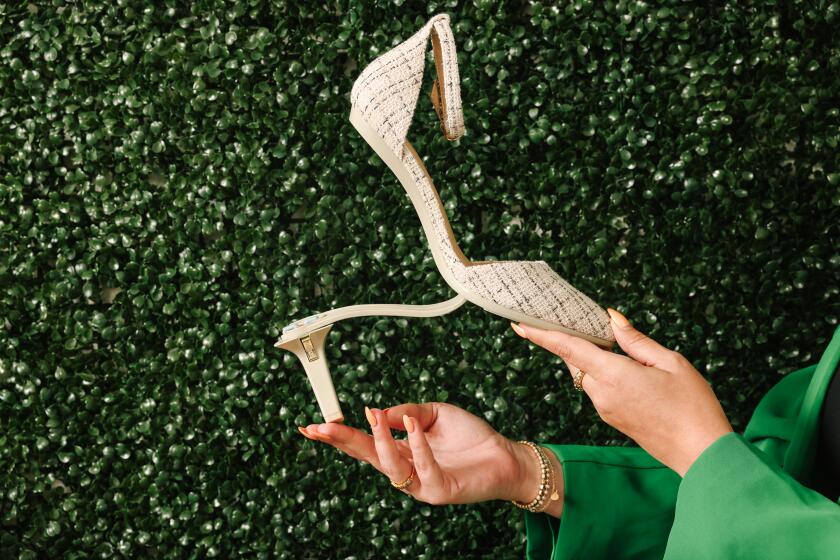AN INDEPENDENT DRIVE
Rodeo DRIVE didn’t become the swankiest shopping street in the world by accident. Pioneering fashion retailers including Fred Hayman, Dick Caroll, Jerry Magnin and Herbie Fink laid its glamorous foundations in the ‘60s and ‘70s by luring Hollywood’s jet set into hip designer boutiques such as Giorgio Beverly Hills, Carroll & Co. and Theodore.
These were the salad days of shopping in L.A., before the mega malls and luxury brand temples moved in, when you could browse the Halstons with a gimlet in your hand, while chatting up Ali MacGraw. Rodeo was still a sleepy little street with gas stations, hardware stores and private bungalows, so parking was easy. And if you weren’t up for driving, there was always an enterprising shop owner who would send a car for you, or have bags of clothes delivered to your manse for home shopping.
Theodore is the last independently owned boutique on the three-block street, having outlived his much flashier contemporaries. But the curtains fall on every era, and owner Fink now has the distinction of being the last of his generation to leave the fabled street.
The retailer is relocating to a newly designed, 4,000-square-foot space on nearby Camden Drive in a few weeks. His reasons are manifold, but “the street is boring now,” said the whip-smart 85-year-old, who delivers most of his remarks with a curmudgeonly air, though he’s as kind as he is blunt. “It’s all Pucci-Gucci. It got too expensive, it’s too corporate -- you could say all of that.”
The Southern California native opened his first Theodore boutique, specializing in avant-garde fashion, on Rodeo in 1969, luring the likes of Cher, Marisa Berenson and Jaclyn Smith. He was the first to bring some of the most heralded designers of our time to the West Coast, including Sonia Rykiel, Issey Miyake and Dolce & Gabbana.
“Herb is a legend,” Hayman said. “His stores were completely unique. He had really special things and still does.”
The street’s evolution into an outdoor designer mall is exactly what Fink hoped wouldn’t happen when he helped launch the Rodeo Drive Committee in 1972, a merchant group spearheaded by Hayman to bring attention to their boutiques. “I joined so that Rodeo wouldn’t become what it became,” Fink said. “I wanted it to remain special.”
Ironically, it was Fink and his compatriots who made the street too hip for luxury brands to resist. With the sky-high rents on Rodeo today, an independent retailer has almost no chance of staying in the black. “They can’t compete with the big corporate resources,” said local real estate agent Chuck Dembo. “A lot of these companies on Rodeo now have their merchandise selling in a major way on the wholesale level. If their retail is not breaking even in one spot, they can absorb the loss.”
But Fink, who operates nine Theodore stores in Southern California (including one at the Grove), doesn’t talk numbers. He’s a fashion guy.
In the early days, Theodore stores sold high-priced versions of casual clothes with a St. Tropez vibe, including denim and T-shirts. This mode of dressing characterizes L.A. style today but was so fashion-forward at the time that Fink and his wife, Norma, had to scrounge for manufacturers that fit the bill. Later, Fink said he broke edgy brands such as Missoni, Versace, Gianfranco Ferre and Claude Montana before anyone in L.A. had even whispered their names.
Though Hayman’s focus was on customer service -- he had a pool table and a bar in his store -- Fink had an eye for unconventional design. “I didn’t buy for the name,” said Fink. “It was always about the merchandise. I preferred to make my own names.”
Herbie and Norma walked the walk in their private lives too, said Leslie Le Tellier, one of the couple’s three daughters, who’s now the buyer for menswear and jewelry for the stores.
“My parents were so avant-garde, it was embarrassing,” she said. “My mom wore Rudi Gernreich clashing dresses and skin-tight stretch jeans before they existed, with huge bouffant hair. Dad wore Nehru jackets and blow-dried his hair, for God’s sake.”
It’s hard to get Fink to talk about the old days (“No one wants to hear old people’s stories”), but he says that he and Norma hung out at legendary places such as the Trocadero, Ciro’s and Spago, where he had his own table. “I guess we drank a little too much. I was out there jitterbugging. Now people take business so seriously -- they don’t have fun anymore. I learned one thing -- if you want to be someone in this world, you’d better love what you’re doing. “
When asked how he feels about leaving the street he helped popularize -- likely for good -- Fink smiled and blew a kiss into the air.
“I think other people feel like it’s a tragedy, but I don’t,” he said.
He then paused and added, “I’m sure the time will come when I miss it.”
--



